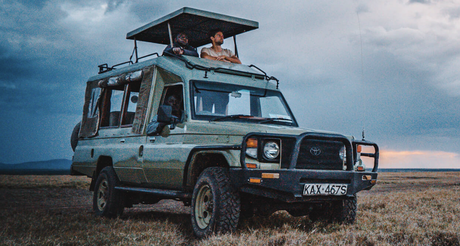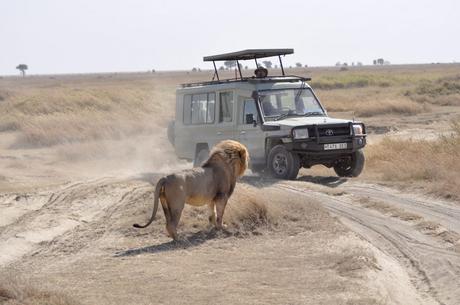The adoption of electric vehicles has been on a slow, steady upswing around the world over the past few years, and for good reason. Not only are new EV models being introduced at a variety of price points, the industry has seen vast improvements in terms of performance, range, and build quality. Additionally, the manufactures of EVs have made inroads with the general public too, many of which have come around to the benefits of driving a more environmentally friendly vehicle.
As electric vehicles become more and more common, we're also seeing them incorporated into a variety of different industries too. Tesla is hard at work on creating an electric semi truck for instance and Amazon has already begun rolling out a fleet of electric-powered delivery vehicles. In the travel industry, hotels, airports, and tour operators are also adopting EVs as part of their approach for sustainable tourism.
Now, you can add another segment to the travel market to that list. Recently, Reuters shared a story of how electric vehicles are now being rolled out in Kenya, changing the face of the traditional African safari in some very positive ways.

Electric Conversion Kits
Anyone who has ever been on an African safari is probably well aware that the Toyota Land Cruiser is the vehicle of choice for many tour operators. Not only are these SUVs large and comfortable to ride in, they also handle well off road and are legendary for their reliability. They aren't known for getting especially great gas mileage however and they can be somewhat noisy. Worse still, if you get enough Land Cruisers together - say at a busy watering hole on the Maassai Mara - they can produce quite a bit of exhaust as well.
But a Nairobi-based company called Opibus is looking to change that. Founded in 2017 with a goal of making EVs more affordable and approachable, Opibus has focused on building electric conversion kits designed to replace the traditional internal combustion engine. This allows vehicle owners to keep the car, truck, SUV or even motorcycle that they already own, but transition to an electric version instead.
With tourism a big part of the economy in Kenya, it seemed only natural to convert safari vehicles as well. Many of those vehicles use big, powerful diesel motors, but the Opibus conversion kits provide plenty of power and torque as well, while eliminating all of the negative aspects that come along with burning petrol.

The Maasai Mara is Kenya's side of the famed Serengeti and is home to the Great Migration. Each year, massive herds of wildebeest, zebra, and antelope-numbering in the hundreds of thousands-wander across the savannah in search of grazing grounds. It is truly one of the most spectacular natural wonders on the planet and a big draw for adventurous travelers from across the globe.
As the concept of sustainable tourism has taken hold across the travel industry, safari operators have looked for ways to continue to share the wonders of the migration with visitors, while having less of an impact on the environment. Introducing electric vehicles is a big step in that direction as the converted Land Cruisers give off no emissions and are almost completely silent in their operation. While the animals on the Mara have become accustomed to seeing and hearing safari vehicles, cutting engine noise helps to maintain a more natural environment.
The EV conversion kits have an added benefit for safari operators as well. Wanjiru Kamau, an electrical engineer at Opibus, tells Reuters that their motors cut operating expenses in half when compared to traditional diesel motors. With fuel costs in constant flux, switching to electric makes good economic sense, particularly if paired with solar panels or wind mills for generating power.
A Bright Future
So far, Opibus has converted ten safari vehicles to electric, which means there is a lot more opportunity to be had in that market. The price of their kits start at $39,900, which sounds like a lot of money but safari operators are use to spending large sums when customizing their vehicles. The fact that this conversion will actually help them save money over time should be a major enticement.
Once a safari vehicle is converted, its performance numbers change fairly dramatically. The electric motor provides 600 nm of torque and can go from zero to 80 km/h (49.7 mph) in just seven seconds. That's pretty quick, although those speeds aren't needed all that often while on the Mara. The battery capacity for the kit is 58 kWh, which translates to a range of 140 km (86 miles). By Tesla standards that isn't very far, but is more than ample for several days in the bush.
Opibus is looking to have a more significant impact on the environment in Kenya with its own operations as well. In addition to helping convert internal combustion engines to electric, it is also streamlining its production by sourcing 35% of its materials locally, with that number increasing as the company grows. That is good news for the electrical vehicle market in Africa and for the environment there too.



